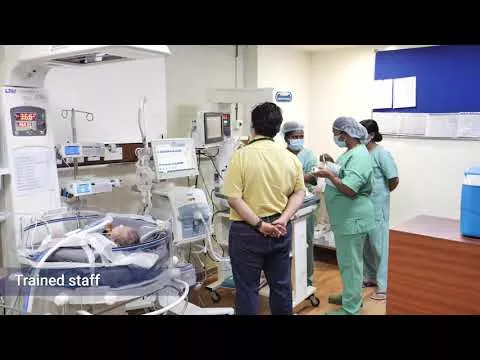You are so happy that the baby is born and has come home healthy and happy. Both of you are tired but happy, and eager to enjoy the parenting experience. A few days go by. Baby feeds, sleeps , cries and feeds again. Your happiness knows no bounds. Then suddenly in the middle of the night you are awakened by a loud cry. The first time you give a nervous laughter, get the baby to sleep and move on. Then it happens again. So you rush to the emergency room all dishevelled and panicky. There is nothing that can burst the bubble of parental happiness more easily than a crying baby at 2:30 am with no apparent cause. By the time you reach the emergency, the baby has already stopped crying, and looks around peacefully. You try to convince the doctor that the baby was indeed crying so loud. the doctor smiles, examines the baby and says "it looks to be colic, don't worry" and sends you on your way. You are relieved, go home relaxed; until it all starts again a few days later. Experiences like these are commonly seen by doctors at a Pediatric Hospital in JP Nagar Bangalore, especially among first-time parents.
So, what is COLIC?
Colic is recurrent and prolonged periods of infants crying, fussing or irritability reported by caregivers that occur without obvious cause.
What this basically means is that there is nothing to be worried about if its colic. It reduces on its own in a few months. But, there are some red flags to be watched out for. Those are the things that the doctors look for. This is because, Colic is a diagnosis of exclusion.
What are the things to be examined when a baby comes with excessive cry?
The first thing to see is how the feeding is going on. Is there any persistent vomiting? is there any rash present? Any abnormal tummy distension or any lumps anywhere? if there is any fever and so on. These are routine checks often carried out by experienced Paediatricians in JP Nagar Bangalore while evaluating a crying infant.
In case there is no underlying cause for the baby crying then its a diagnosis of colic. So what not to be done when there is colic?
Possibly medications have a limited role in management of colic. If there is underlying regurgitation then medications for that might help. A definite no is spinal or orthopedic manipulation.
What has to be done to reduce the crying?
The first thing is to reinforce to the caregivers that breast feeding is to be continued. The feeding technique, burping and positioning both during and after feed has to be looked at. If formula feeds are being given then change of formula especially a hydrolysed formula might help. Some studies have shown usefulness of probiotics like Lactobacillus. Its always better to reduce stimulation that is, to have a peaceful environment around the baby. Parental counselling might help, just to reassure that there's nothing wrong with the baby or that they are not doing anything wrong. Positive reinforcement works wonders.
A lady had come to my OPD with a crying baby and was actively contemplating her life choices which led her here (I mean motherhood and all, not to my OPD per se). It looked to be a case of post partum depression, so we advised her counselling for the same. It worked. The colic settled n a few weeks, and now after a year, she is expecting her second kid!!!!!
Post partum depression could be one of the effects on the mother, other could be migraines (obviously !!!). For the babies fortunately no adverse effects have been documented.
So, to conclude, colic is a diagnosis of exclusion. There are a few things that the caregivers can do to reduce the crying episodes. Parental counselling forms the bedrock of the management. However, just as in life, the main thing which helps is patience and time.











